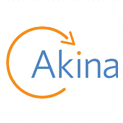Public or Private Aid — It’s All the Same to Pro Bono Clients
If you attended any banquets or award ceremonies to honor legal pro bono efforts in 2013, you probably saw lots of love for lawyers in private practice. But just because private attorneys tend to get much of the recognition doesn’t mean government lawyers aren’t doing their fair share.
According to the American Bar Association’s Center for Pro Bono, government attorneys are sometimes overlooked in their pro bono efforts because their regulatory duties can isolate them from their private practice counterparts. But charitable works from the public sector are on the rise, particularly since the ABA passed a resolution in 2006 encouraging government attorneys to do more for their communities.
Public sector support for low-income clients is more important in some areas than in others. In Washington, DC and state capitals, government attorneys constitute a substantial share of the overall legal talent pool. And in remote areas, public lawyers may make up nearly the entire pool all by themselves.
But lending legal expertise can also be trickier for government attorneys than for those in the private sector. It’s much more common for a public lawyer to encounter a conflict of interest; for instance, most federal attorneys are prohibited from representing clients in any federal court. Even cases that could suggest the slightest impropriety must be avoided to preserve the integrity of the public agency. Depending on the government department, a whole range of statutory restrictions may prevent its attorneys from doing any work outside of official business.
And since public attorneys are supported by taxpayers, they must often be careful to avoid using department resources for their pro bono cases. That may mean no pro bono work during business hours, no use of the office photocopier and even no use of work email to reach a client — all of which are easy to accommodate for the lawyer in private practice.
Fortunately, the American Bar Association offers simple instructions describing how to establish a pro bono program in virtually any government office, including model pro bono policies that are already working well at the federal, state and local levels. There’s even a detailed digital guidebook that provides in-depth guidance for public lawyers who want to donate their skills without running afoul of their offices’ restrictions.
If you check with the head of your agency and find that you’re in one of the most restrictive departments that prohibits legal work outside of your official capacity, that doesn’t mean you can’t still support legal pro bono in other ways. There’s likely at least one legal aid organization near you that needs more than just lawyers to take on cases — it may also need legal researchers, administrative volunteers, workshop instructors and case placement interviewers. If you need help finding volunteer opportunities like these, your local bar association is often the best place to start.








